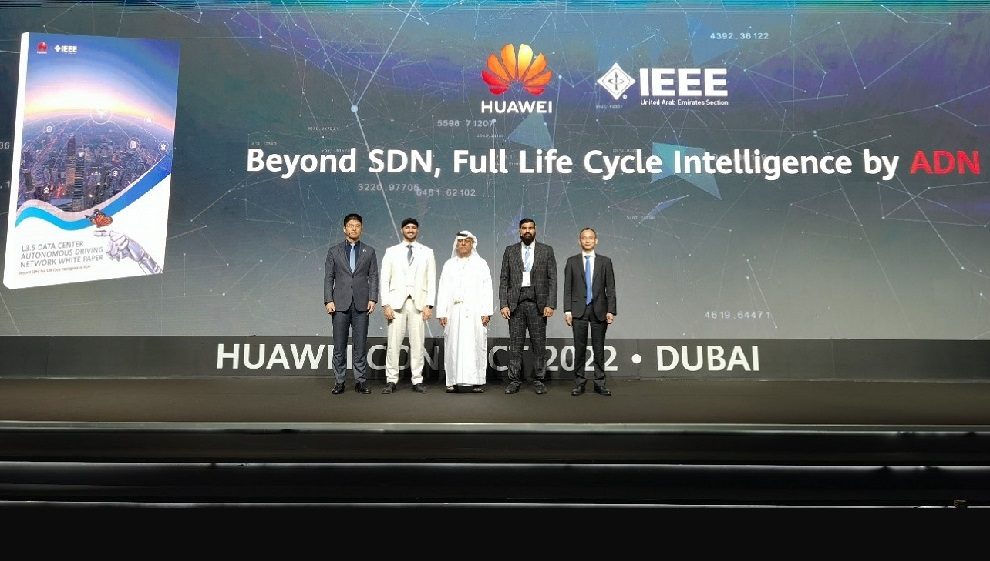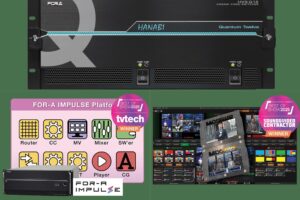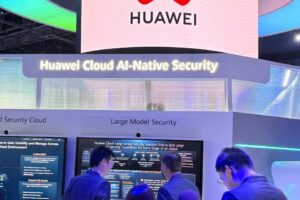At HUAWEI CONNECT 2022 in Dubai, Huawei and IEEE UAE Section jointly has released the L3.5 Data Center Autonomous Driving Network White Paper, with industry forerunners UAE’s Ankabut and Commercial Bank of Kuwait (CBK) witnessing the release. This white paper provides deep insight into the architecture, key capabilities, and typical application scenarios of L3.5 autonomous driving networks (ADNs) in data center scenarios, as well as deployment practices for key sectors such as finance, public service, and energy. Serving as an informative point of reference for enterprises, this white paper can help to take the automation and intelligence of data center networks (DCNs) to new levels.
According to the white paper, as the digital economy becomes a key driver for global economic growth and enterprise data centers expand rapidly, data center networks urgently need to solve the following most pressing problems:
1) Multi-cloud and multi-DC heterogeneous networks have become the norm for enterprises. As such, enterprise customers need to centrally manage and coordinate multi-cloud DCNs and multi-vendor network devices as well as implement highly automated networks.
2) The ADN needs to seamlessly integrate into enterprises’ O&M systems and IT processes, which vary significantly between enterprises, so as to implement intelligent closed-loop management throughout the process.
To address the preceding challenges, the White Paper proposes the L3.5 data center autonomous driving network, which implements high-level automation and intelligence capabilities such as unified management, flexible orchestration and collaboration, and simulation in multi-cloud and multi-vendor networks, in addition to interconnecting with enterprises’ IT management systems to achieve end-to-end automation.
The White Paper illustrates the key technologies of L3.5 ADNs for data centers:
1) Open programmability platform: centrally manages heterogeneous networks and devices.
2) Intent orchestration platform: provides more than 100 generic NE models for flexible orchestration through drag-and-drop operations, implementing flexible orchestration of network-wide service flows without breakpoints. This, in turn, helps implement highly automated multi-cloud and multi-vendor heterogeneous networks and provision cross-cloud networks in seconds.
3) APIs published from orchestrated service flows: are flexibly invoked by enterprise IT management systems on demand. In this way, the ADN can seamlessly integrate into enterprise O&M systems and IT processes, slashing the number of work orders and reducing the amount of repetitive manual work by more than 70%.
“Huawei’s data center autonomous driving network is the industry’s first to evolve from L3.0 to L3.5. This is the result of our deep insight into real-world service scenarios and pain points of customers across sectors such as finance, public service, and manufacturing, as well as our joint innovations with industry forerunners,” said Arthur Wang, Vice President of Huawei’s Data Center Network Domain. “The White Paper shares best practices across these sectors, with the aim to enhance enterprises’ competitiveness in the digital economy era by optimizing their network architectures and operating modes and helping them build agile and reliable services while reducing their OPEX and CAPEX.”
To date, Huawei’s Data Center Autonomous Driving Network Solution has been deployed in data centers of more than 10,000 customers across sectors such as finance, public service, manufacturing, and energy.
Huawei and IEEE UAE Section jointly release L3.5 Data Center ADN White Paper












